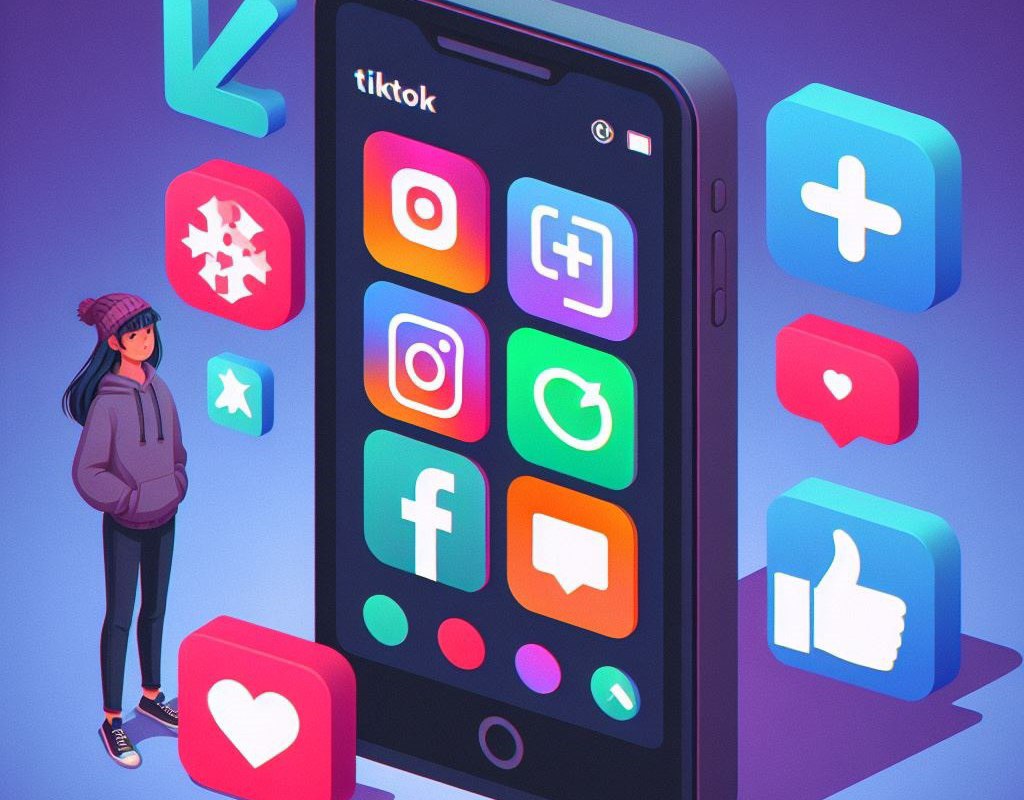If you’re a parent, you’ve probably faced the big question: Should your child dive into the world of social media? Well, that leads to a bunch of other questions, like how do you even introduce it to your kid? When’s the right time? And what are the good and not-so-good sides of social media? Every parent seems to have a different take on these matters. And if you didn’t grow up with social media, figuring out how it’ll affect your child can be a real head-scratcher.
To make sense of it all, we’ve gathered a list of the major upsides and downsides of social media for parents to mull over. Sure, there’s a bunch of positives and negatives, and a lot of it depends on your unique situation with your child. But here are some general areas, backed by research, to help guide you as you navigate this decision for your family.
The Pros of Social Media
Social connection
Many parents are drawn to social media for their children at a younger age than originally intended because of the social connection it provides between peers. In today’s world, the average childhood is more intertwined with screens than ever before. While it may seem silly to us as adults, sending memes back and forth on Instagram is just one way kids show affection in a friendship. It’s understandable that parents may feel concerned if they think their child is being left out of these social interactions that all their peers are having.
However, it’s important to remember that there is a fine line between allowing social media for that crucial connection-building and allowing it simply because of peer pressure. Your child’s social needs are just as important to take care of as their physical, mental, emotional, and academic needs. It’s important to weigh the pros and cons of social media usage for your child and make an informed decision that’s best for your family.
Access to information
Have you ever noticed how much amazing stuff you can learn on social media and the internet? It’s like a never-ending treasure trove of fascinating information! From discovering new recipes on Pinterest to stumbling upon cool science facts on TikTok, there’s so much to explore. Kids can learn all sorts of interesting things and who knows, maybe they’ll even find something that sparks a new hobby, skill, or career one day! It’s like a huge digital playground full of endless possibilities.
Creative expression
One of the truly amazing aspects of social media is that it lets people showcase who they are. If you’ve got a passion or a skill, now you can share it with a genuine audience. While belting out a song in front of a live crowd might be different from posting a video, the excitement of knowing people are tuning in to something you put your heart into can still give you those fluttery butterflies. For kids, using social media to display their talents can be a powerful way to shape who they are and boost their confidence in the process. It’s like a digital stage for them to shine on!
The Cons of Social Media
Exposure to harmful content
Remember how we said social media is a wealth of information? That’s actually more of a bittersweet aspect of social media. With all that information, there’s inevitably inappropriate content that is not safe for kids. But you can’t get the good without the bad for almost all popular social media platforms. And even as social media companies have tried implementing community guidelines and explicit content filters, it’s still all too easy for a child to stumble across this while scrolling.
Just one example of this is the prevalence of porn in these social media apps. Many parents don’t know just how accessible porn is on these apps. You can even find it on “less assuming” apps like Pinterest. Other apps like TikTok say their algorithm does not allow for explicit sexual content, but users have quickly found loopholes that allow them to post content without getting flagged by the filter. It’s called “algo-speak”, where people use certain words or emojis to evade the algorithm(i.e., people will type corn or 🌽 instead of porn).
Online predation
Now, here’s something crucial to consider. When kids are out and about in the vast online world, it opens up a big door for potential troublemakers and predators to reach and harm them. Sometimes, we tend to underestimate the risk, falling into what we call the “not my kid syndrome.” As parents, we put a lot of effort into teaching our kids to be savvy and responsible, so it’s only natural to believe that our child wouldn’t ever interact with a stranger online. But the reality is, all kids are capable of making mistakes or having a lapse in judgment – including chatting with a stranger on the internet. It’s a reminder that even with the best guidance, our little ones can find themselves in tricky situations online.
Addiction
Here’s a thought to ponder: experts say that social media can mess with our brains just like any addictive substance does. When we casually flick through our feeds, it triggers a release of dopamine in our brains. And before you know it, our brains start yearning for that sweet dopamine hit, pulling us back into scrolling without much of a second thought. If you’ve ever found yourself wrestling with the urge to stay away from Facebook for too long, imagine how much tougher that temptation is for the still-developing brains of our kids. It’s like a digital craving that’s hard to resist.
Increased mental health struggles
As we dig deeper into the impact of social media on teenagers, the emerging research is painting a concerning picture. It turns out that spending too much time on social media can significantly contribute to mental health issues among teens. Studies reveal that adolescents who clock in more than 3 hours daily on social media are twice as likely to grapple with problems like anxiety and depression. Considering how addictive social media can be, hitting that 3-hour mark is quite common for many teens.
But it doesn’t stop at general anxiety and depression; there’s also a higher likelihood of more serious concerns like thoughts of self-harm, suicidal ideation, and struggles with disordered eating among kids who are frequent users of social media. It’s a stark reminder of the potential toll excessive screen time can take on the well-being of our teens.


Comments